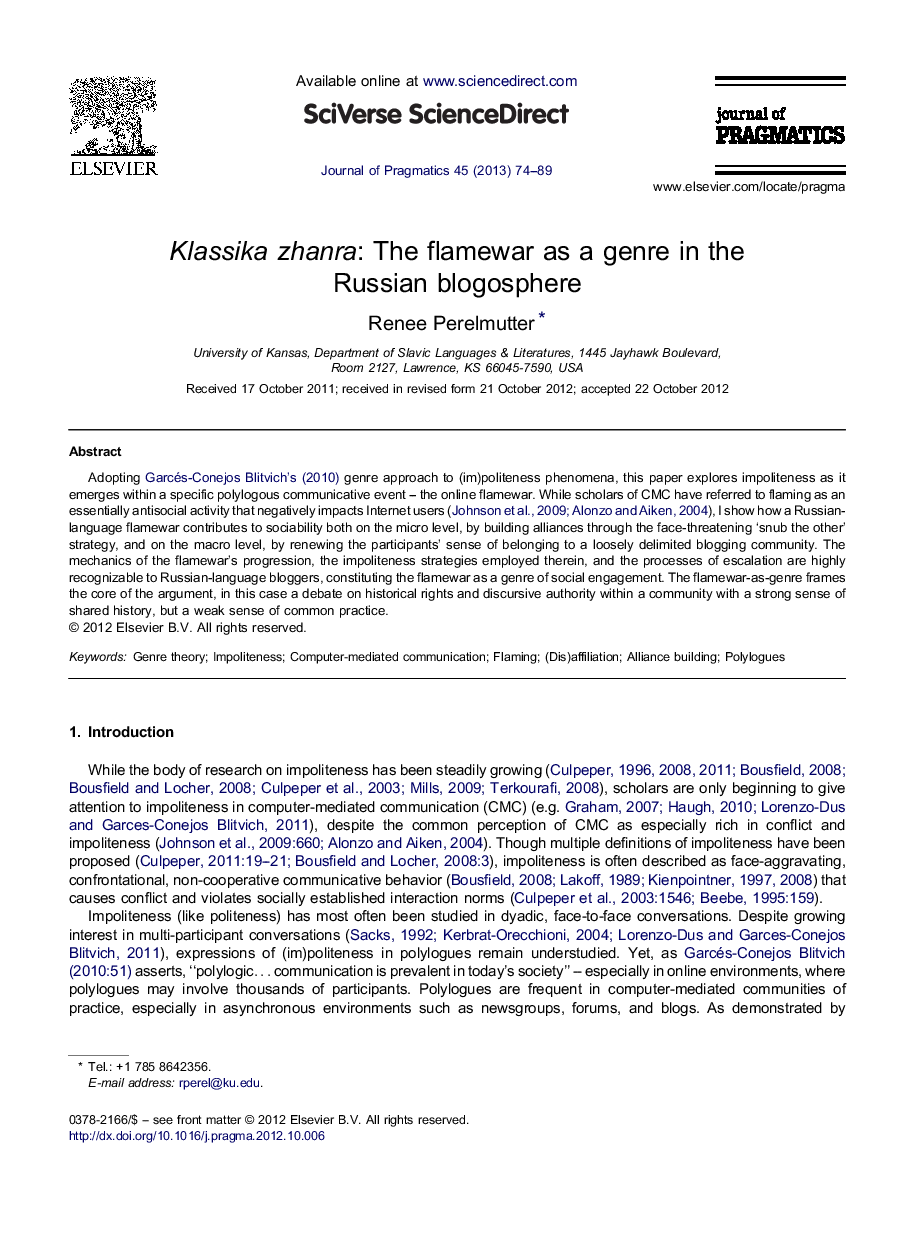| Article ID | Journal | Published Year | Pages | File Type |
|---|---|---|---|---|
| 932961 | Journal of Pragmatics | 2013 | 16 Pages |
Adopting Garcés-Conejos Blitvich's (2010) genre approach to (im)politeness phenomena, this paper explores impoliteness as it emerges within a specific polylogous communicative event – the online flamewar. While scholars of CMC have referred to flaming as an essentially antisocial activity that negatively impacts Internet users (Johnson et al., 2009 and Alonzo and Aiken, 2004), I show how a Russian-language flamewar contributes to sociability both on the micro level, by building alliances through the face-threatening ‘snub the other’ strategy, and on the macro level, by renewing the participants’ sense of belonging to a loosely delimited blogging community. The mechanics of the flamewar's progression, the impoliteness strategies employed therein, and the processes of escalation are highly recognizable to Russian-language bloggers, constituting the flamewar as a genre of social engagement. The flamewar-as-genre frames the core of the argument, in this case a debate on historical rights and discursive authority within a community with a strong sense of shared history, but a weak sense of common practice.
► The flamewar is a recognizable genre of social engagement. ► Impoliteness is sanctioned within this genre. ► Participants use recognizable impoliteness strategies to attack individual and social face. ► (Dis)affiliative impoliteness is used to form alliances with some participants while snubbing others. ► The flamewar is not antisocial – it is a communal event that promotes sociability.
